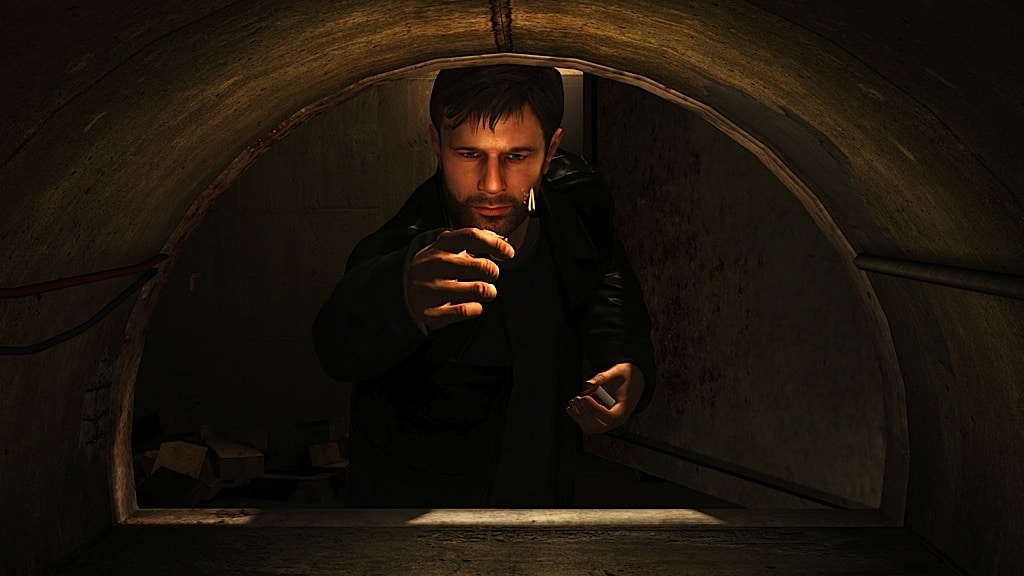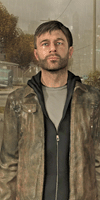 |
| John Noble, recording motion capture for one of the game's antagonists. |
 |
| Heavy Rain protagonist Ethan Mars. |
In L.A. Noire, you play a police detective in 1947 Los Angelos. Like in the Grand Theft Auto games, the player is given a large city within which to navigate wherever you please; you can ignore the main plot if you like and explore on your own, or you can follow the in-game story, solving cases and arresting the criminals to progress. The game really does require you to use your detective skills, putting the extremely detailed facial rendering program to work as you decide if a witness is lying or if a suspect is telling the truth.
 |
| L.A. Noire protagonist Cole Phelps. |
Heavy Rain, as far as video games go, is very different. Compared to L.A. Noire, Heavy Rain is extremely linear: there are only certain places you can go, only certain things you can do or say, and every option you have is spelled out for you. However, Heavy Rain is simultaneously much more free, because there are many ways to tell the main story. You can get a main character killed halfway through the story, and then they're dead for the rest of the game, or they can get out alive; the story moves on either way. There are several different possible endings to the story, and the actions you take throughout the game determines what happens in later sections.
Heavy Rain is more accurate described as an interactive fiction. It's made up almost entirely of cutscenes that you can control; as the player, you move the character through the programmed actions by following the on-screen commands, and if you mess up, the character messes up, too, and you can either start over or do something else. That is, if your mistake didn't kill the character, of course.
 |
| An example of on-screen commands during an action sequence. |
Heavy Rain isn't the best thing ever, however. In retrospect, I noticed a few plot holes and unanswered questions that kind of weaken the strength of the story. It's also very, very dark, not just with the search for the serial killer but also with the tasks given to the boy's father by the killer, one of which involves killing an unsuspecting drug dealer in order to gain a clue as to where the boy is. I wouldn't have minded the dark story, though, if it had succeeded in being emotional. While it was emotionally appealing, the only part of the game during which I felt any strong emotion was towards the end, when the player's actions determine whether, after all that work, the kidnapped boy lives or dies.
When compared to L.A. Noire, I still prefer Heavy Rain, but in all honesty, the two games aren't even attempting to achieve the same affect. Heavy Rain is a dark, emotional drama with an awesome story, a wonderful interactive style, and a somewhat disappointing execution, while L.A. Noire is an amazingly animated mainstream action game that, as far as I can tell, successfully blends the action with problem solving and critical thinking into a more-than-mediocre but less-than-impressive plot. Most people, it seems, are looking for mainstream-type stories, so I imagine in the coming years that L.A. Noire will make more of an impression, but Heavy Rain will still be recognized as a game whose designers thought outside of the box and made something truly unique.
(Side note: L.A. Noire is really awkward to type after a while - did any other reviewers notice after a while? It's cool to say, but I wish they hadn't insisted on using the periods in the acronym.)



1 comment:
I've discovered that the periods in L.A. are a must. Louisiana Noire is just not what they're going for.
Post a Comment